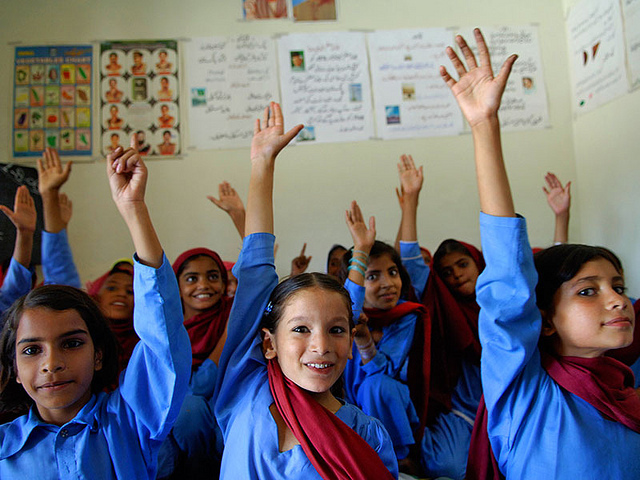By Anthony Aslou
Visa waiver programs. Airstrikes. Rejection of refugees. This is the continuation of old, failed policies—the unchanging faces of counterterrorism and national security. But leaders around the world are lying to their respective societies about the efficacy of these policies. They continue to propagate the hate and discrimination that exists within society against individuals from different religious or ethnic backgrounds. In the name of “security,” they tell their citizens that these policies will keep out violent extremists and eliminate the threat of foreign fighters and refugees.
The phenomenon of foreign fighters—individuals traveling to conflict zones who are motivated by humanitarian, ideological, or identity reasons—has existed since the advent of modern civil wars; and yet, Western countries continuously fail to understand this development and respond properly. Airstrikes and drone strikes have not succeeded in their aims, inspiring new generations of violent extremists. David Sedney, former US Deputy Assistant Secretary of Defense for Afghanistan, Pakistan, and Central Asia, said that “The U.S. approach to countering violent extremism is failing badly…Rather than reducing threats, our tactics produce more dangerous, more committed extremists.”
Western countries need to implement counterterrorism strategies that end counterproductive policies both at home and abroad. The West needs to not only aid countries with their sustainable domestic policies—such as programs that focus on youth education and development—but also implement effective civic reforms at home. These policies will work toward a more inclusive society: in this case, accepting individuals, regardless of background, as equal citizens of each respective country.
To persuade prospective individuals to join their cause, recruiters for terrorist organizations capitalize on a major and overlooked problem: issues of identity. Western countries have not responded to the underlying problem that pervades the environment for terrorism recruitment: potential recruits feel rejected in the country they have called home for years. Identity plays a significant role in the psychological transformation of individuals, motivating them to join terrorist organizations. Recruiters for terrorist organizations know that the identity approach will have a better chance of succeeding because societal conditions have made it so. Unfortunately, Western countries have not coherently responded to this foundation of extremism, evidenced by the number of foreign fighters doubling within the last year.
The identity approach especially appeals to younger generations coming from immigrant communities, who typically feel lost and ostracized by their respective societies. Recruiters, through social media or in-person encounters, approach such individuals and influence them into thinking that their current lives have no real meaning. Once fallen victim to their manipulations, these individuals see joining these terrorist organizations as their only option for finding out more about themselves, because it is only on the front lines that will they find their true purpose–their true identity.
This is the problem that we face as a society, and this is the question we must answer as a society: how can governments produce more inclusive and tolerant environments in order to stop individuals from falling prey to the tactics of terrorist recruiters? As of now, half the developed world’s population seems to view immigration negatively. We have to appeal to the identities of these individuals, showing them that coming from a particular ethnic background does not make them any less of a citizen of their host country. Improving education at home by introducing a curriculum in schools that focuses on diversity (e.g., classes on world religions and ethnic studies) would help future generations become more tolerant, understanding, and inclusive.
While working to rehabilitate the ideals of an inclusive society at home, the West also needs to work on improving education abroad, for ending terrorist recruitment requires action on both sides. Global education remains a powerful force in stemming the tide of younger recruits to terrorist organizations. The international community needs to reignite its efforts in making sure the current generation of children does not grow up without receiving a proper education. Terrorist organizations have exacerbated the crisis of education we see today. Boko Haram (meaning “Western Education is Forbidden” in English) has kept more than one million children around the Lake Chad region out of school. Globally, over 65 million children have no access to education, with 11 million alone residing around the Lake Chad region. The Syrian Civil War has displaced more than 2.7 million Syrian children. With no access to education and extracurricular activities, children become more susceptible to recruitment by terrorist organizations. Manuel Fontaine, UNICEF’s West and Central Africa Regional Director, said that the longer children are kept out of the classroom, “the greater the risks of being abused, abducted and recruited by armed groups.” If the international community wants to fight terrorism, it needs to help future generations by financing education in emergencies and safe schools. Policies of inclusion and global education are powerful weapons against terrorist organizations, and remain necessary tools in the fight against violent extremism. Misguided counter terrorism strategies involving the restriction of refugees and visa waiver programs will only worsen the existing problems. Only through education of our youth will real, effective change occur.
Credit for featured image: DFATD-MAECD/Lana Slezic, CC Flickr. License can be found here.

